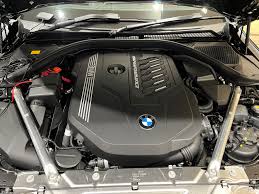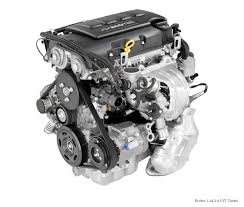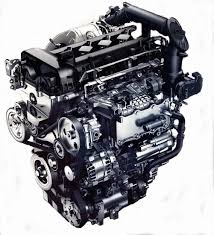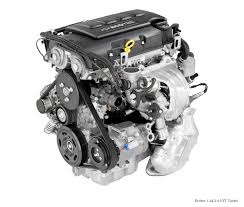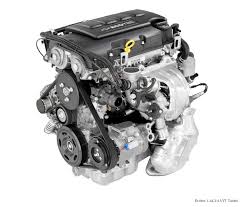The Ultimate Guide to Buying Used Car Engines
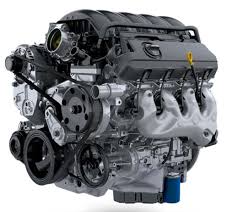
Strong 8k brings an ultra-HD IPTV experience to your living room and your pocket.
When it comes to vehicle maintenance and repair, purchasing used car engines can be a cost-effective solution. Whether you're looking to replace a blown engine or upgrade your ride, knowing how to navigate the used engine market is essential. This guide will provide you with the information you need to make an informed decision, ensuring you get the best value for your investment.
1. Understand Your Needs
Before you start shopping for a used engine, it's crucial to determine your specific needs. Are you replacing a damaged engine in your vehicle, or are you looking to swap in a more powerful option? Here are a few questions to consider:
What is the make and model of your vehicle? Different vehicles require specific engines, so knowing your vehicle's specifications is vital.
What is your budget? Used engines can range significantly in price based on age, condition, and brand. Establishing a budget will help you narrow your options.
Are you considering any performance upgrades? If you're looking for more horsepower or efficiency, consider engines known for those features.
2. Research Engine Types
Once you have a clear idea of what you need, it’s time to research the different types of engines available. There are several categories of used engines, including:
Long Engines: These engines include the engine block, cylinder head(s), and internal parts, but typically do not include accessories like the alternator or starter. They are ideal if you're transferring components from your old engine.
Short Block Engines: These are similar to long blocks but do not include cylinder heads. They’re usually less expensive and suitable for a rebuild if you already have compatible parts.
Complete Engines: This includes everything—engine block, cylinder heads, and all necessary accessories. These are typically the most straightforward options for a complete replacement.
3. Source Your Engine Wisely
Finding a reliable source for used engines is essential. Here are some options to consider:
Local Junkyards or Salvage Yards: These places often have a wide variety of engines from different makes and models. You can inspect the engine before purchase and often negotiate prices.
Online Marketplaces: Websites like Craigslist and specialized auto parts websites can have listings for used engines. Make sure to check seller ratings and reviews before purchasing.
Engine Rebuilders: Some companies specialize in remanufacturing engines. While these may be pricier, they often come with warranties and can provide assurance of quality.
Local Mechanics or Dealerships: Some mechanics or dealerships may sell used engines that they have removed during repairs. These can sometimes come with service records, providing extra peace of mind.
4. Inspect the Engine
When you find a potential engine, inspecting it is crucial to ensure you’re making a sound investment. Here are key things to check:
Visual Inspection: Look for signs of wear and tear, including rust, oil leaks, or broken parts. A clean engine is often a good sign, indicating it was well-maintained.
Compression Test: This test measures the engine's ability to generate pressure, which indicates its health. A mechanic can perform this test for you.
Service Records: Ask the seller for any maintenance history or service records. These documents can provide insight into how the engine was treated and its overall condition.
Mileage: Consider the mileage on the engine. Generally, a lower mileage engine is preferred, but it’s important to evaluate the overall condition rather than just focusing on miles.
5. Check for Compatibility
Not all engines will fit into every vehicle, so checking for compatibility is vital. Here are some considerations:
Engine Size: Ensure that the engine size matches the specifications required for your vehicle.
Engine Type: Verify that the engine type (e.g., V6, V8, diesel) matches what your vehicle is designed to accept.
Wiring and Connections: Different engines may have varying wiring and connector configurations. Check that the engine has the same setup as your original one.
6. Warranty and Return Policies
When purchasing a used engine, it's essential to inquire about warranties and return policies. Reputable sellers often provide some form of warranty, which can protect you from purchasing a faulty engine. Here’s what to look for:
Length of Warranty: A longer warranty period is generally more favorable, as it indicates the seller's confidence in the engine's quality.
What’s Covered: Understand what the warranty covers. Does it include labor costs, or is it parts-only?
Return Policy: Ensure you know the return policy in case the engine doesn’t meet your expectations.
7. Installation Considerations
After purchasing a used engine, you’ll need to consider installation. Here are your options:
DIY Installation: If you have mechanical skills, installing the engine yourself can save money. However, ensure you have the right tools and knowledge to perform the job safely.
Hiring a Mechanic: If you’re not confident in your abilities, hiring a professional mechanic is wise. Be sure to get estimates upfront and inquire about their experience with engine installations.
Conclusion
Buying a used car engine can be a smart and economical decision if done correctly. By understanding your needs, thoroughly researching options, inspecting engines, and ensuring compatibility, you can find a reliable engine that meets your requirements. Additionally, don’t forget to consider warranties and installation options, which can further protect your investment. With these tips, you’ll be well-equipped to make an informed purchase and get your vehicle back on the road in no time engine hunting!
Note: IndiBlogHub features both user-submitted and editorial content. We do not verify third-party contributions. Read our Disclaimer and Privacy Policyfor details.



